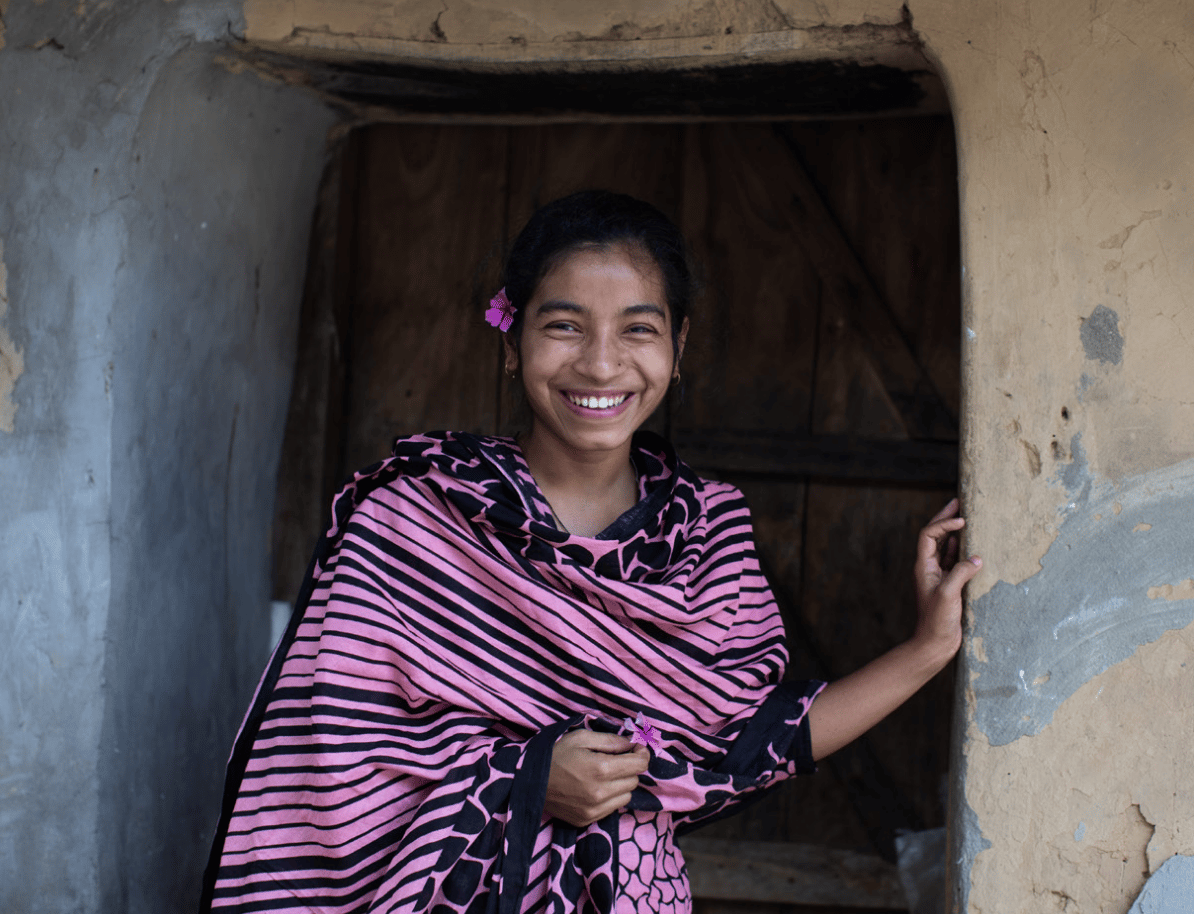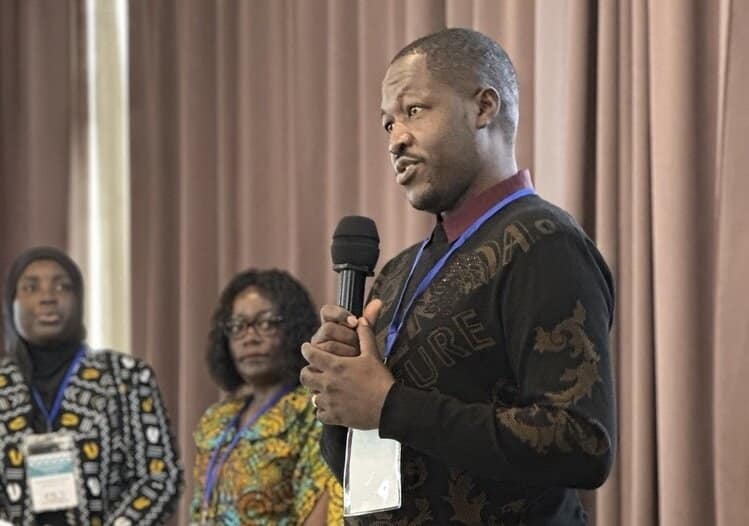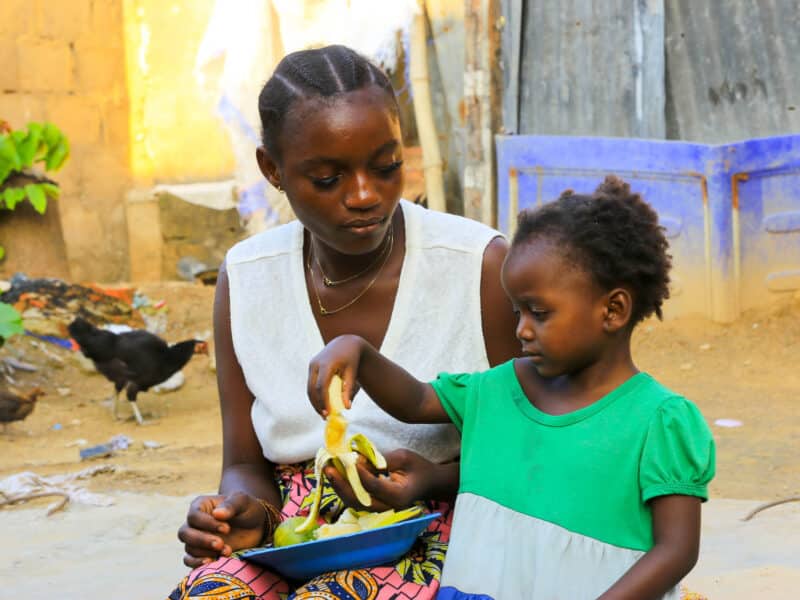Akiya Akhter, married as a teen, was able to postpone having a baby until she was 20. Aproma Marma, after losing her first child to malnutrition when elders insisted that she eat and sleep less during pregnancy, now has a healthy two-year-old. Mahbuba Siddiqua changed her in-laws’ minds and was allowed to give birth safely at a health center instead of at home.
These are just three of the millions of people whose lives have been impacted by the programs of the Johns Hopkins Center for Communication Programs-led Ujjiban project, which held its official closing ceremony last week after five years of successes in maternal and child health, adolescent health, family planning, nutrition, tuberculosis services and adoption of healthy behaviors in Bangladesh using social and behavior change communication.
“With a strategic focus on cross-cutting issues of couple communication, gender equity and social norms, the five-year Ujjiban project not only aimed to improve individual health behaviors in the short-term, but to create lasting change in the way that Bangladeshis make decisions about their health and feel empowered to act upon those decisions,” said William Glass, CCP’s interim director. “Ujjiban means ‘infusion of new life’ in Bangla, and this term embodies the project’s innovative approach to improving the health of people in Bangladesh.”
A consortium led by CCP with partners Save the Children and the Bangladesh Center for Communication Programs headed the USAID-funded project. They implemented a three-pronged program of capacity and systems strengthening, community mobilization and the use of a wide variety of mass media to achieve results. The work was done primarily in the country’s Sylhet and Chattogram divisions.
Participants were exposed to Ujjiban-facilitated content through multiple channels. This included visits to health centers and home visits (services provided by government and non-government partners), community screenings and courtyard session as well as television, radio, and social media content.
In a recent survey conducted in Sylhet and Chattogram, 44 percent of women, 45 percent of men and 37 percent of adolescents were exposed to Ujjiban-facilitated content through at least one of these channels in the last 12 months.
Among the other preliminary findings of the recent study:
- There were significant increases from the start of the project in the percentage of women practicing key health behaviors across maternal and child health, family planning, nutrition, TB, adolescent health and child marriage. A significantly higher percentage of women at endline had received four or more pre-natal care check-ups, were using a modern contraceptive method, and had a child aged 6-23 months with adequate diets when compared to baseline data.
- People’s support of more equitable household roles and responsibilities increased from baseline to endline. Such gender equity norms related to maternal, newborn and child health increased from 34 percent at the start to 53 percent at the end, while in family planning, they rose from 59 percent to 76 percent.
- Participants exposed to Ujjiban-facilitated content reported higher knowledge, self-efficacy, couple communication and social norms in their communities for health behaviors compared to those who were not exposed to Ujjiban-facilitated content. The findings demonstrate the project’s success in addressing gender inequity as a key determinant of health.
- Statistical models demonstrated significant associations between exposure to Ujjiban-facilitated content and key project outcomes including use of a modern contraceptive method, receipt of four or more prenatal check-ups, dietary diversity and menstrual hygiene management, among others.
The full Ujjiban endline report will shed further light on these promising results.
Ujjiban also learned lessons that can be used in future social and behavior change communication projects. Among the recommendations:
- There are multiple ways to reach the audience, and programs should harness them: Integrated projects require coordinated messaging across channels, and Ujjiban’s coordination with partners across health areas and sectors facilitated high levels of exposure not only among women, but also among men and adolescents.
- Continued attention to household and community-level factors is needed: Across health behaviors, the influence of household and community-level factors remains evident. Couple communication, household approaches to birth preparedness, gender equity and social norms related to specific health behaviors were significantly associated with numerous health outcomes. Future programs should continue to focus efforts on these household and community-level factors to sustain Ujjiban’s achievements.
- Health workers remain essential to reaching women and girls: Exposure to Ujjiban-related content through health workers – whether government health workers or partner NGO workers – was significantly associated with both women’s modern contraceptive method use and menstrual hygiene management among adolescent girls. Continued efforts to coordinate across different cadre of health workers will help ensure exposure to health messaging and women’s engagement.
“Only through communication for social and behavior change can we increase community involvement, remove social stigmas, motivate lifestyle changes to prevent diseases, and encourage people to avail [themselves of] health services,” Dr. Md. Anwar Hossain Howlader, secretary of the Ministry of Health and Family Welfare’s Health Services Division, told those assembled last week. “USAID’s Ujjiban Project has played an important role in building the foundation for all this over the past five years.”
As one of its final projects, Ujjiban staff created a booklet called Tales of Light, highlighting the project’s impact. The book “narrates the journeys of unsung heroes like peer educators, change agents, and community health workers who worked alongside Ujjiban to improve the lives of the people in their communities,” its authors write.
One of the stories is Nusrat Fatema’s, a teenager when the COVID-19 pandemic began. She was studying to be a teacher but suddenly, with pressure from relatives, her parents were working to arrange a child marriage for her.
“Two of my closest friends and some of my classmates got married during the pandemic,” Nusrat recalls. “They gave up their education, and their independence. Every decision about their life is made by their husband.” Refusing to give up, Nusrat reached out to Ujjiban’s community mobilizer, Mohammad Yousuf Nabi.
After hearing about Nusrat’s predicament, Yousuf, along with the members of the school management committee where Nusrat studied, visited her parents. They explained how damaging, forced marriage can be to Nusrat’s mental and physical health. Together, they managed to change Nusrat’s parents’ minds.
Her parents “told me that I did the right thing by refusing to get married. They even said that I stopped them from making a mistake,” Nusrat says. “Most of my friends who got married at that time are not doing well.”





